BY: ALEX PIERCE-FELDMEYER
Being from the United States, I felt that the voice of Science Meets Food needed to explore more global regions and their eating and drinking culture…even if we can’t physically travel around the world…YET.
Enter, Australian coffee culture and all of its glory. I became interested in this culture based on some off-putting opinions overheard about innovation of American coffee culture being behind Australia. After interviewing and investigating I hate to admit it, but I think the Aussies may have a point.
Once realizing research online only goes so far, I reached out to the president of the Australian Specialty Coffee Association (ASCA), Kieran Westlake, to better understand an Australian’s perspective…and perhaps to selfishly get some brewing tips. Born into a family of publicans* and restaurateurs Kieran remained heavily involved in the hospitality industry throughout his days studying science at the University of Queensland. For the last 11 years Kieran has been with publically listed Silver Chef Ltd and is currently the Head of Channel Strategy. Silver Chef is a hospitality equipment funding business that was started in 1986, with a focus on offering small and large cafes, restaurants and hotels flexible equipment funding options. Kieran has specifically developed coffee equipment options for café owners and coffee roasters, influenced heavily by his own experience of establishing and owning a boutique coffee café, Project 41 Café.
Before jumping into the questions and answers, I want to clarify the history of specialty coffee associations, as well how specialty coffee is defined. The Specialty Coffee Association of America (SCAA) was established in 1982. Shortly thereafter, the Specialty Coffee Association of Europe (SCAE) was established in 1998. Over several years these associations operated separately but joined forces in January 2017, officially, after many meetings. Now they are collectively known as the global “Specialty Coffee Association.” However, Australia is still defined by its own association, ASCA which was established in 2001.
All of these associations beg the question, what makes coffee specialty? The concept of Specialty coffee is relatively new. Specialty coffee is defined by knowledge of its origin (Farmer, Buyer), roaster, grinder, brewer, and barista. The definition revolves around the concept of understanding the history of the bean and how to properly treat it to bring out its best bean-self to gain the adoration of the consumer.1
Before diving into the intricacies of Australian coffee culture, I asked Kieran some background questions to understand how someone so staunchly connected to the specialty coffee arena arrived there. We navigate to better understanding the goals of the ASCA and Kieran’s passion for people. Then we take a deep dive into coffee cultures, and of course how Kieran drinks his coffee.
Welcome to my interview with Kieran Westlake
Coffee Questionnaire
Background
As a child, what did you want to be when you grew up?
Happy
Would you say your personality is more science or business oriented?
I feel these are very similar and take a lot of my science background into business as it is very relevant for objectively working through complex business problems or opportunities.
How did you find your professional self in the specialty coffee arena?
I have lived and breathed hospitality for most of my life, including having my own café. My current day job is ‘Head of Channel Strategy’ for publicly listed, hospitality equipment funder – Silver Chef Ltd (ASX:SIV). Simply put, I am Silver Chef’s coffee guy and I am tasked with finding unique ways to provide capital and options to our coffee partners – café owners and coffee roasters, ensuring they have the best chance of success and importantly, options when it doesn’t go to plan.
As the president of the Australian Specialty Coffee Association, what do you want to impact the most throughout your tenure?
- Improve the association’s commercial positon and partnerships.
- Increase member value and benefits.
- Build brand and community to continue to expand the scope of the association and its impact on the broader community – both domestically and internationally. Build strategic partnerships with affiliates to increase our influence across an industry that employs over 80,000 people across Australia at any given time. Mental health, domestic violence, violence against women, issues around inclusivity in the workplace and society at large.
- Lastly, I want us to continue to deliver world leading competitions and champions that showcase the best of the Australian Coffee Industry.
What are you most passionate about when it comes to coffee, life, career and/or ASCA?
People – whether that’s in the world of coffee, my personal life, ASCA or my career. I love talking to the entrepreneurs, the genuine hospitality people have about their products, their aspirations, and why they do what they do. I love listening to the artists of the industry – the roasters, the baristas, and the winemakers whose passion and enthusiasm always makes me want to jump in to try and help them achieve the dreams.
Coffee Culture
Do you have an opinion on American Coffee Culture? If so, how would you contrast American coffee culture to Australian?
The US market is huge, so the specialty coffee market can be lost in the noise of the market’s more commercial elements. The breadth between the best and the worst coffee in America is vast, made obvious by the market saturation held by popular brands. This is probably the biggest difference between the Australian and American markets. Australia has a much higher saturation of specialty coffee as a total percentage of market than the US.
There are three overarching drivers leading the expansion and saturation of specialty coffee in Australian market over the last 15 years.
- The size of the Australian market – it’s 1/10th in population, but the same land mass as the US and overwhelmingly concentrated in a few coastal cities.
- The Australian cultural appetite for risk or “having a crack”.
- Our propensity to want to explore the world and the incorporate these experiences into our own culture through collective learning.
Could you describe Australian coffee culture in 3 words?
Specialty, Innovation, Purpose-Driven
Do you have a region of the world or a culture you think has the best coffee drinking culture? If so why?
I think they are all unique and fun to explore on their own merits. The Australian culture has seen innovation driven by chasing the best coffees in the world, which has in turn led to the Australian consumer having easy access to high quality coffee, especially when compared to other markets. The passion for our craft is universal and just the style of product can be different.
What region’s coffee culture is most interesting to you? And Why?
Personally, the US market and Asia. With the US market it’s the disparity that exists between world leading professionals and products, and the entry level offerings that are not only still viable, but thriving. As an Australian, it’s also fascinating to see the diversity of American cultural identity, from town to town and state to state.
Similarly, Asia has an incredibly diverse and distinct collection of nations, but with thousands of years of history. It’s fascinating at the best of times, but when you throw in a new product that has a strong brand that individuals or whole nations can buy into and run with, you see the true strength of these cultures and their economies. Korea has its ever expanding list of roasteries, China is planting coffee trees and seeing the meteoric rise of Luckin, and Japan is adopting and incorporating elements of traditional tea ceremony techniques, to the swathes of ‘origin’ nations and their domestic spin on the humble coffee beverage, it’s all pretty amazing!
Coffee Consumption
How have your experiences changed the way you consume/interact with coffee? Is your cup of coffee different now than it was 5 years ago?
Definitely! From 5-8 coffees a day to now only 1 or 2 and never after 12pm. My choice of beverage has also changed – 1 espresso and 1 piccolo latte next to each other, to batch brewers or v60 pour overs – i.e. no milk.
How would you describe ‘boutique coffee?’ What was the most important component of establishing a boutique café?
Boutique has a few interpretations – in the sense of a café or food outlet I would tend to describe one that is similar to others around it, but its offerings, and therefore their brand and personality are niche to the point of being unique. For roasteries this also plays true, but can also be a commercial description of its scale –whereas in retail you can be both boutique and have scale (# of units).
Why is filtered/drip coffee (& flavored roasted coffee beans) ‘looked down upon’ in the specialty coffee world? (From my experience…)
Filtered/drip coffee as a method of extraction isn’t necessarily looked down in specialty, instead it’s the product that is traditionally brewed using this method, especially in the commercial volume portions of the markets that is looked down on. This says more about the quality of the raw coffee, the skill of the roaster and the skill of the barista grinding and brewing the coffee that produces a poor quality product. The irony is that a lot the best 95+ coffee is only roasted for filter preparation.
What do you think is the best technology to have in the home for “specialty” coffee experiences? Is it possible?
Spend more on the grinder and learning how to use it properly than anything else. Dialing in will make the biggest difference to an extraction. This is why the best baristas get paid more based on their skill to dial in accurately and quickly.
Then buy the machine or apparatus that produces the beverage of your choice. Again invest in learning how to use brewing equipment properly. Unlike wine and other beverages, coffee can be ruined by the skill of the operator making it faster than the quality of the bean can overcome a lack of skill. Coffee can be ruined by the operator rushing the brew process which can compromise the quality—which the bean alone cannot overcome.
Lastly, buy the best, most interesting coffee you can comfortably afford and get to brewing!
How would you tell an amateur (first-time coffee drinker) to experience their first coffee? What would they be looking for? What should they be thinking?
I always recommend going to a roastery for a first time as the skill of the staff will typically be higher and they will have a larger range of coffees and brewing methods for a person to explore. This will help a first time coffee drinker figure out what and how they like their coffee. It’s a journey and a fun one!
What is your personal favorite way to drink coffee?
Black – filter or espresso.
I hope everyone got as much joy as I did from this interview. Henceforth, I plan to become a student of the perfect brew. From this piece, I hope you learned more about Specialty coffee while becoming more knowledgeable on the nuances of coffee brewing. Also, I hope that you begin to consider the cultural differences that can exist in a global coffee community. Here’s to traveling abroad for some café research! One final thank you goes out to Kieran for replying to all of my messages. I hope that we can meet one day in Australia so I may learn first-hand about Aussie coffee culture
*Publicans: A manager/owner of an English/Australian Pub
If you find yourself wondering further about any of these topics, please comment below on what you find intriguing.
FAQ’s
Why can’t I get drip coffee in Australia?
https://www.sydneymovingguide.com/coffee-in-australia/
There isn’t much milk to put in my coffee, why is that?
https://www.sydneymovingguide.com/coffee-in-australia/
Resources
https://www.silverchefgroup.com.au/irm/content/default.aspx
https://australianspecialtycoffee.com.au/
References
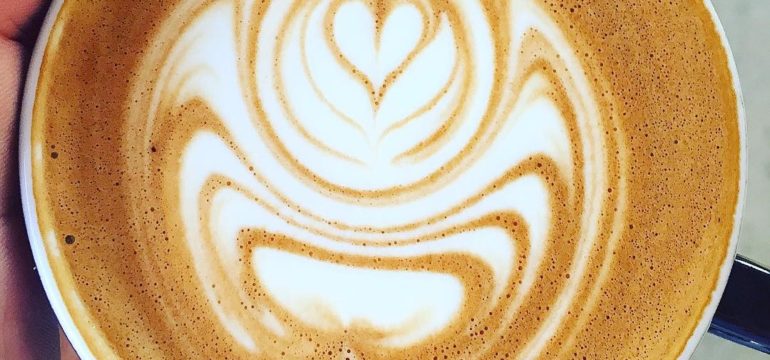
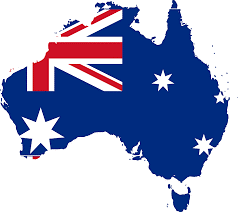
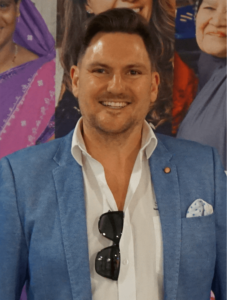



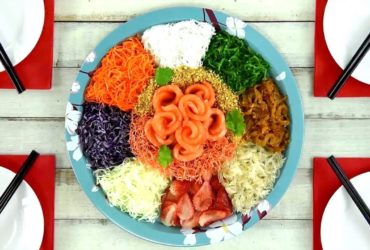
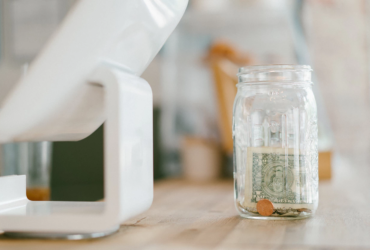



Leave a Reply